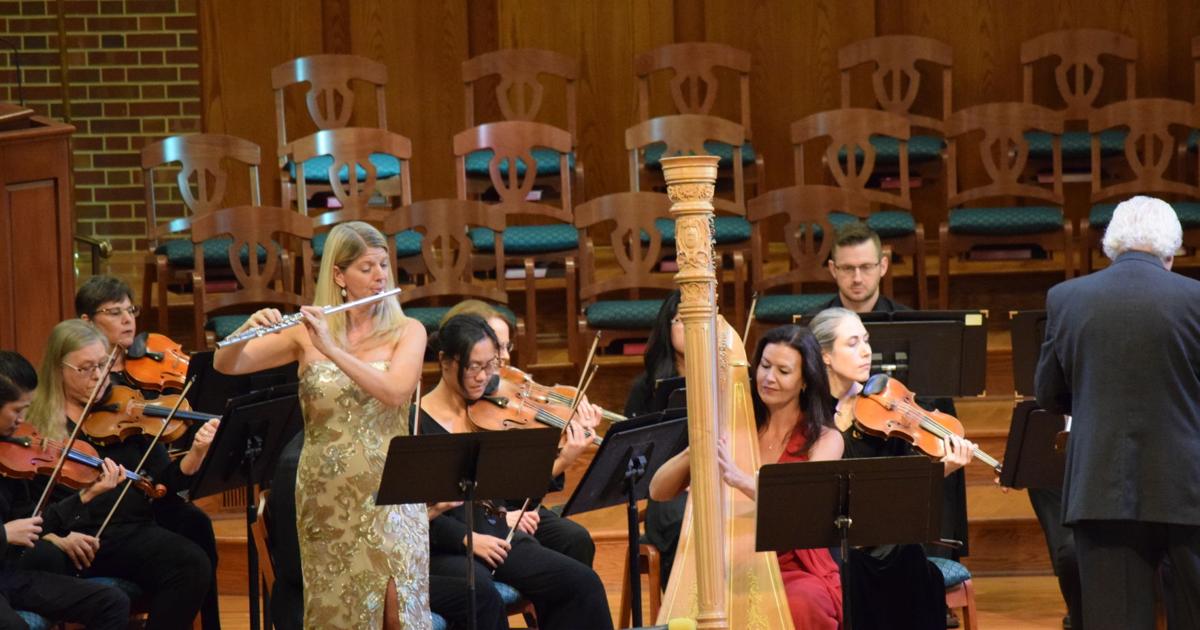Entertainment
Aiken Symphony concert salutes Mozart

Anyone would be hard-pressed to think of a musical genius greater than Wolfgang Amadeus Mozart. From the age of 5, when he began performing in public, until his untimely death at the age of 35, he established an astounding career as both a performer and a prodigious composer.
The Jan. 11 concert of the Aiken Symphony is dedicated to some of Mozart’s most memorable works. Three different musical genres will be represented.
The first selection belongs to the category of light diversions or divertimenti. Composed in 1772, when he was only 15, the “Divertimento in D Major” is one of those pieces that Mozart was adept at “dashing off” between longer assignments. He was, during his short life, often strapped for cash, and so he would frequently turn to these shorter works to earn a quick fee.
This particular three-part composition has remained popular over time in two different versions, one for chamber orchestra and the other for string quartet. Mozart was himself an excellent violinist, having been trained in the instrument by his often-overbearing father Leopold, who wrote the influential “Essay on the Fundamentals of Violin Playing.”
The second musical genre highlighted in the upcoming concert is the symphony, and Maestro Scott Weiss has chosen a prime example of Mozart’s mastery of the form. One of the last symphonies written by Mozart, “Symphony #39 was completed in 1788 but perhaps never performed during his lifetime. The first documented performance of this particular work dates from 1792 in Hamburg, Germany, one year after the composer’s death.
The third and final selection is the “Piano Concerto #23.” Mozart is credited with having established the model for this particular musical form for piano and orchestra. Along with his mastery of the violin, he was a very accomplished pianist, and it is likely that he himself was the featured keyboardist at a series of concerts that included this concerto in the spring of 1786.
For the Aiken performance, Ying Li will serve as soloist. A native of China, Li received her BM at the Curtis Institute in 2019 and her MM at Juilliard. Curtis is, by some measures, the finest, most selective music school in the world, boasting one of the lowest acceptance rates of any American college and offering each student a full scholarship. Li more than justified her acceptance by Curtis by winning First Prize in the 2021 Young Concert Artists Susan Wadsworth International Auditions.
The “Piano Concerto #23” follows the traditional three-movement format with a lively beginning and end, which frame a slow middle section that one critic described as “lyric and softly moonlit.”
Finally, let me address the abiding confusion over Mozart’s middle name. Although most references to the composer continue to use the moniker “Amadeus,” meaning “Lover of God” in Latin, Mozart himself more often employed as his middle name the Italian variation of “Amadeo,” perhaps as a result of the three Italian journeys he made between 1769 and 1773, or its French equivalent “Amade,” perhaps due to his trips to France and works commissioned by the French. Mozart was a very cosmopolitan fellow.
In the final analysis, none of these variations was ever part of his birth name, which was “Joannes Chrysostomus Wolfgangus Theophilus Mozart.” “Theophilus” or “Lover of God” in Greek was the name of the composer’s godfather, and perhaps all of Mozart’s subsequent linguistic manipulation of his own middle name is his own playful response to what his father wrote on the baptismal register in Salzburg in 1756.
Tickets are $45 or $60 depending on seat selection. Active military members can receive $10 off per ticket by calling the office. Tickets are available online at aikensymphony.com or by calling 803-295-0313.










